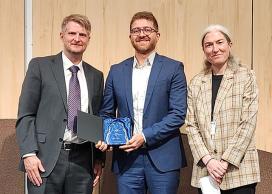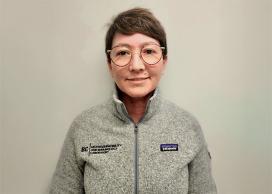Research in focus: John Oliffe
Learn more about the work of our researchers at UBC

September 27, 2021
Name:
John Oliffe
My preferred pronouns:
he/him
Title:
Professor
Tier 1 Canada Research Chair in Men’s Health Promotion
Department/Unit:
School of Nursing
Location:
Vancouver
What year did you start working at UBC?
2003
Provide an overview of your research in 75 words or less:
As founder and lead investigator of UBC’s Men’s Health Research program, my work focuses on masculinities as it influences men’s health behaviours and illness management, and its impact on partners, families and overall life quality. Findings drawn from my research have informed a suite of men’s health interventions amid offering guidance to clinicians and researchers to advance men’s health promotion in the areas of psychosocial prostate cancer care, smoking cessation and male suicide prevention.
What do you hope will change as a result of this research?
Over a decade ago our program began highlighting the urgent need to address male depression and suicide. The changes we hope to garner include greater public awareness and understanding around the gendered dimensions of depression including the potential for anger, irritability, substance use, and risk-taking as externalized depressive symptoms in males. In addition, findings from our research guide clinicians in their practice and program planners in tailoring gender-specific health interventions and mental health programming.
Are there any research collaborators you’d like to acknowledge and why?
I would like to highlight the 13 researchers taking part in the UBC Research Excellence Cluster, Reducing Male Suicide (the Cluster) I am co-leading with Dr. John Ogrodniczuk. Our aim within this cluster is to purposefully work across UBC faculties and externally with national and international partners to create and mobilize knowledge to de-stigmatize men’s mental illness and suicidality, reduce disparities in care, and lead effective male suicide prevention interventions globally.
What have you learned during your research that has surprised you the most?
Men do talk and do care about their health. I have used a range of qualitative and quantitative methods to advance research and develop targeted interventions to promote men’s health. Among these, photovoice has endured as a robust approach to investigating and sharing the findings pertaining a wide array of men’s health issues. In these circumstances we have found men are willing to share generously about their lives and related health and illness experiences.
- Our people
- Research in focus






